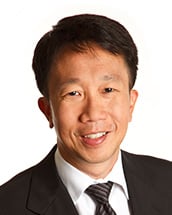In brief
The Ministry of Health (MOH) has commenced an investigation into a company allegedly offering doctors healthcare awards in exchange for signing up for a promotional package.
The MOH has raised that this is a potential breach of the Healthcare Services (Advertisement) Regulations (HCSAR).
Background
Medical practitioners in Singapore have reportedly been approached by a medical tourism platform with the opportunity to be awarded titles such as “Gastroenterologist of the Year” if they opt to purchase a package offered by the company.
Such packages include being featured in an entire page of the medical tourism platform’s magazine issues on “200 Best Medical Centres/Clinics in Asia” and “December/January Special Awards”, and on its social media pages, these packages have been offered at around SGD 10,000.
While some medical practitioners have declined the offer, it has been reported that there is at least one medical practice displaying that it has won awards from this medical tourism platform.
The MOH is investigating this matter on the basis that this may be a potential breach of the HCSAR, which regulates advertisements made by licensed healthcare services providers.
Applicable advertising regulations
Under the HCSAR, licensed healthcare services providers may display or publish awards conferred on them only if the award pertains to the healthcare provider’s satisfaction of technical standards relating to their provision of healthcare services. The awarding body must also be satisfied that the licensee has fulfilled the technical standards, which include accreditations by Joint Commission International and ISO certifications.
It is an offence for licensees to display accreditation or awards which do not relate to the attainment of technical standards, punishable with a fine of up to SGD 20,000 and/or imprisonment for up to 1 year.
The MOH has emphasised that providing offering money or other forms of compensation to guarantee awards is prohibited. This is to avoid the licensed healthcare services provider’s portraying of an unjustified impression of the quality of its services.
Separately, medical practitioners must comply with ethical codes such as the Singapore Medical Council’s (SMC) Ethical Code and Ethical Guidelines (ECEG) and Handbook on Medical Ethics (SMC Handbook), which provide that medical advertising should be factual and verifiable, and not misleading, sensational or laudatory.
Breaches of SMC’s guidelines may be an offence under the Medical Registration Act, and sanctions may be meted out by the SMC’s Disciplinary Tribunals such as censures, suspensions and even removal of the medical practitioner from the register of practitioners. Although the medical practitioner will be liable for breach of SMC’s guidelines, such breaches may be published in the news and potentially attract negative publicity for all parties involved such as the medical practitioner’s clinic / hospital.
Key takeaways
The investigation commenced by the MOH illustrates that the MOH is vigilant and prepared to take enforcement action against those who are in breach of advertising regulations.
Members in the industry, including both licensed healthcare services providers and medical practitioners, should ensure that they comply with advertising obligations, as negative publicity for breaches would outweigh any perceived benefit.
* * * * *

© 2023 Baker & McKenzie.Wong & Leow. All rights reserved. Baker & McKenzie.Wong & Leow is incorporated with limited liability and is a member firm of Baker & McKenzie International, a global law firm with member law firms around the world. In accordance with the common terminology used in professional service organizations, reference to a “principal” means a person who is a partner, or equivalent, in such a law firm. Similarly, reference to an “office” means an office of any such law firm. This may qualify as “Attorney Advertising” requiring notice in some jurisdictions. Prior results do not guarantee a similar outcome.





